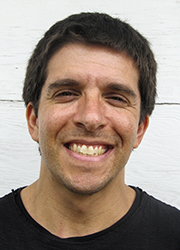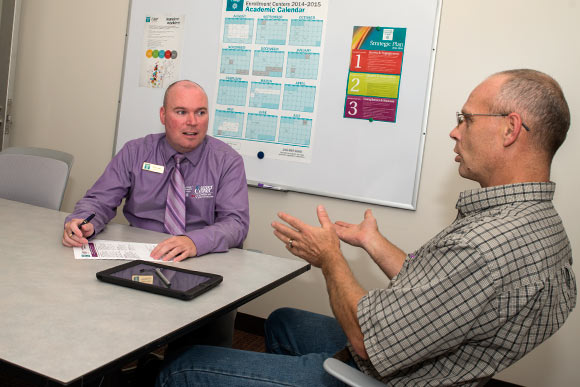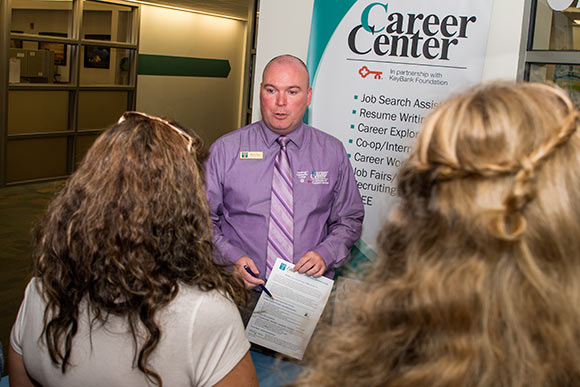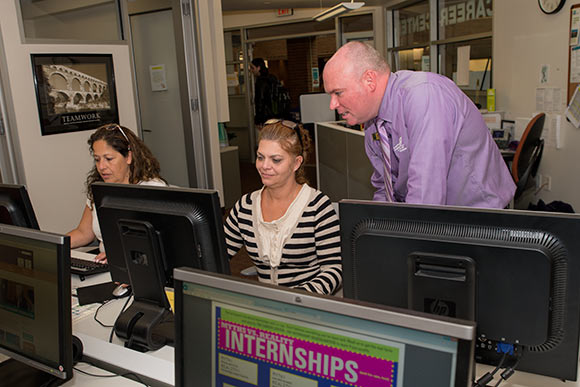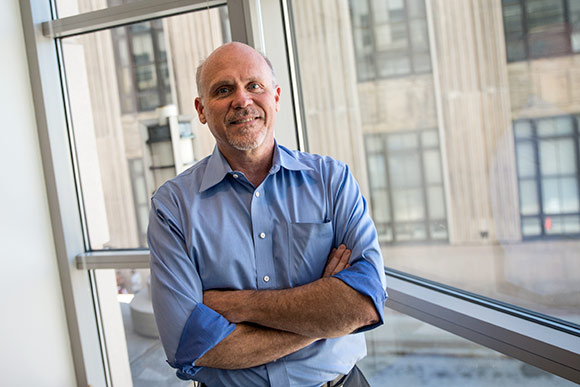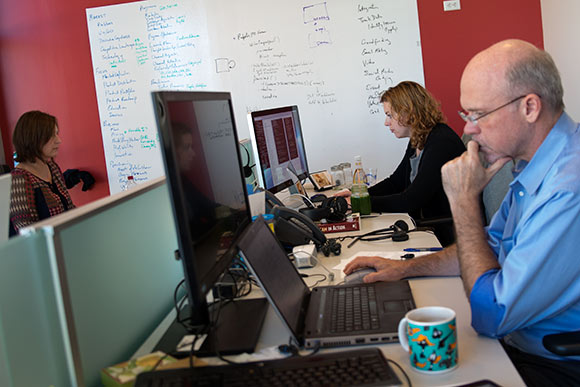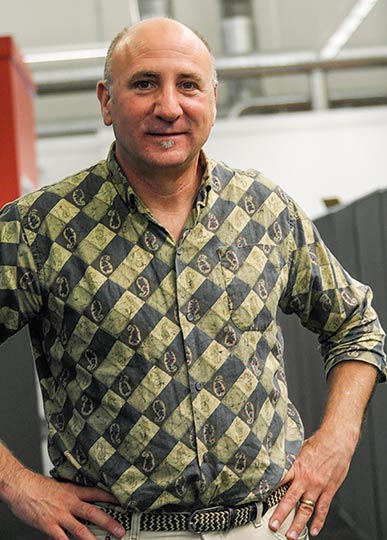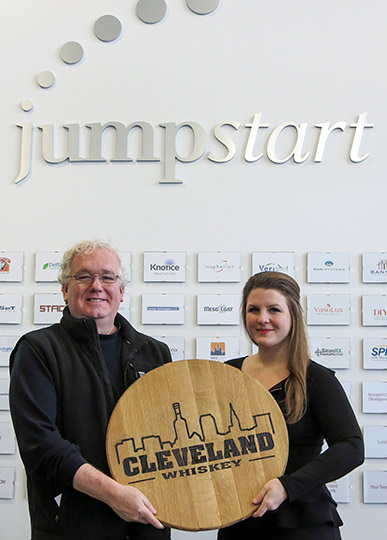a new age: local groups provide resources, advocacy for cleveland's older workers
If age connotes wisdom, then Northeast Ohio's business community would do well to get smart, say groups and individuals providing resources for experienced workers seeking local job opportunities. While some industries may overlook the finely aged, focusing solely on the next Zuckerbergian brainiac fresh out of college can ignore a swath of older innovators and job-seekers needed to grow mid-sized markets like Cleveland.
Forty-plus workers might not fit the typical hip innovator profile, but they are often undervalued, note these resource providers. A healthy portion of JumpStart's applicants are in their mid-40s and hail from traditional industry, says Jeremy Quinn, principal of talent with the nonprofit business accelerator.
JumpStart's involvement with high-tech, high-ceiling companies attracts those looking to fund the second phase of long careers, notes Quinn. Some may be former CEOs of large companies, arriving with particular skill sets that mesh with growth industries like biomedicine or advanced materials.
"They're willing to take a pay cut to get into the entrepreneurial world," Quinn says. "Software developers are usually younger, but [older candidates] can find jobs in marketing, sales or accounting."
Working at a startup takes a willingness to incur risk, he says. Veteran businesspeople bring an attendant knowledge, not to mention a network of trusted contacts that curbs a portion of that peril.
"They can take calculated risks based on age and experience," Quinn says.
'Age is not a barrier'
Ron Cass, 52, knows there's a market expectation that favors the young genius who left college to pursue a wild idea. The romantic notion of coding software while sleeping on a couch and eating ramen noodles doesn't apply to him, but years in IT has brought him back to a place where he can sink all the time he needs into running a business.
Cass is founder of Big River, an online fundraising platform with clients that include Cleveland Museum of Art and Greater Cleveland Food Bank. The downtown Cleveland startup offers its customers cloud-based tools designed to tell potential donors exactly what the impact of their money will be.
"The last 20 years of e-commerce hasn't trickled down to nonprofits," Cass explains. "We take best practices and put those tools in our clients' hands."
The JumpStart-incubated company was borne from its founder's two-plus decades in software development as well as work assisting nonprofits with events and fundraising. Cass saw organizations struggling to raise money from new sources, so he stepped in to fill the gap.
Cass launched Big River in 2011, building a customer base before receiving funding and other help from JumpStart. While nationally the IT market expects entrepreneurs to look like college students, investors will put money into a strong idea no matter how many years its creator has under his or her belt, he maintains.
"Startups make the same mistakes initially, but there's an ability to tolerate risk because of where I am," says Cass. "Age is not a barrier."
Not having the right skill set is often more of an obstacle to employment than the amount of candles on one’s birthday cake, says JumpStart's Quinn. Someone with an established marketing background is likely not going to learn complex coding, but that same person could join a high-tech startup as a consultant.
"Get to networking events and see what these companies are recruiting for," Quinn suggests.
Making a match
Jim Tabaczynski is so confident in the prevalence and value of mature job seekers that he created a website to help them. Nifty50s, as its name suggests, connects graying applicants to work opportunities through an online board. Its creator compares the service to a dating website where both employers and hopeful hires can scope each other out. The service's locally operated database of job listings ranges from the highly technical to less skilled positions, while its efforts have received support from Cleveland employers Hyland Software, GrafTech and Lubrizol.
According to the Bureau of Labor Statistics, there are approximately 2.3 million people over age 50 out of work. An aging population living longer on shrunken retirement funds has created a so-called "silver tsunami" of folks who plan to keep on working to retirement age and beyond. Though age discrimination is illegal in the U.S., the baby boomer generation has a tougher time securing jobs than their younger counterparts, notes Tabaczynski, 65.
"Our purpose is two-fold," says the service co-founder. "We're looking to make those matches while serving as advocates for older workers."
There's a certain amount of myth-busting that goes with the territory, says Tabaczynski. For example, older employees are thought to be less productive than younger workers while also costing more. However, data shows older workers use fewer sick days than their younger colleagues, he notes. They also come to the office with lower healthcare costs as they no longer have small children as dependents.
Accomplished, capable and dedicated are other adjectives Tabaczynski uses to describe older workers. "If you hire someone in their 20s, you have to train them," he says. "That may not be needed with someone over 50."
Never too old to learn
If some skilling up is necessary, a return to school could be in order. Cuyahoga Community College is readying its Plus 50 Encore Completion program, set to assist students age 50 and over in completing associate degrees or certificates in the fields of health care, education and social services. In four years, 21,000 baby boomers attending 17 community colleges have passed through the program managed by the American Association of Community Colleges (AACC).
Tri-C received a two-year grant from AACC to give its older students a competitive edge in the job market, says Dennis Joyce, a career development specialist at the school. Eighteen percent of the college's enrollment is 40 or over, in line with national projections of students 35-plus comprising nearly 20 percent of college attendees by 2020.
Through the program, skill-building courses will improve participants' abilities with math, English and computers, says Joyce. Additional resources will refresh rusty resume writing and interview skills. Those graduating from the program could land jobs in child development or medical assistance.
Marketability is the mission for a demographic that even at 50 may have another 20 years of good work ahead. "These are people who want to reinvent themselves," says Joyce. "We want to help them complete that dream."
While older individuals aspire to maximize their resources, so must transitioning cities like Cleveland, notes Quinn of JumpStart. Experienced workers can be a valuable piece of that transformation, he believes.
"Age should not be a prerequisite," he says. "There is work available out there. It's not necessarily just a young person's game."
